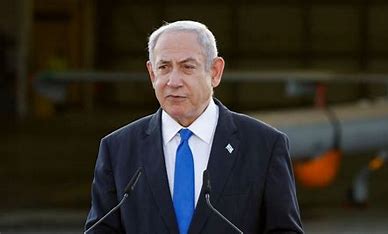Tel Aviv, December 11 – Israeli Prime Minister Benjamin Netanyahu has issued a stern warning to Syria’s new leadership, emphasizing Israel’s readiness to take necessary actions to protect its security interests. This follows the collapse of Bashar al-Assad’s regime and marks a pivotal moment in Middle Eastern geopolitics.
Netanyahu’s Key Statements
In a video address, Netanyahu underscored Israel’s position:
- Non-Interference in Syria’s Internal Affairs:
“We have no intention of interfering in Syria’s internal affairs,” Netanyahu stated. - Action Against Security Threats:
He clarified, “We will take whatever steps are necessary to prevent Iran from re-establishing its military presence in Syria or transferring weapons to Hezbollah. What happened to the previous regime will also happen to this one if it poses a threat.” - Historical Parallel:
Netanyahu likened Israel’s airstrikes on Syrian military installations to the British Air Force’s action during World War II to prevent French military assets from falling into Nazi hands.
Assad’s Collapse: A Historic Shift
On Sunday, Syrian rebel forces entered Damascus, forcing President Bashar al-Assad to flee, ending his over two-decade-long rule. Netanyahu called this event a “historic day for the Middle East,” acknowledging both opportunities and risks.
- Opportunities for Peace:
Extending a “hand of peace,” Netanyahu expressed Israel’s willingness to establish peaceful relations with the Druze, Kurds, Christians, and Muslims in Syria. - Risks and Challenges:
Netanyahu also highlighted potential dangers, including the collapse of the 1974 Separation of Forces agreement between Israel and Syria, which had maintained peace for 50 years.
Securing Israeli Borders
Following the Syrian Army’s retreat, Netanyahu instructed the Israeli military to secure positions near the border to prevent hostile forces from exploiting the power vacuum.
“This collapse is a direct result of our forceful action against Hezbollah and Iran, Assad’s main supporters,” Netanyahu stated. He emphasized the importance of vigilance to counter emerging threats.
Global Implications
The fall of Assad’s regime signals a major shift in regional power dynamics. While it offers opportunities for rebuilding, the rise of new threats underscores the volatile nature of the post-Assad era.













